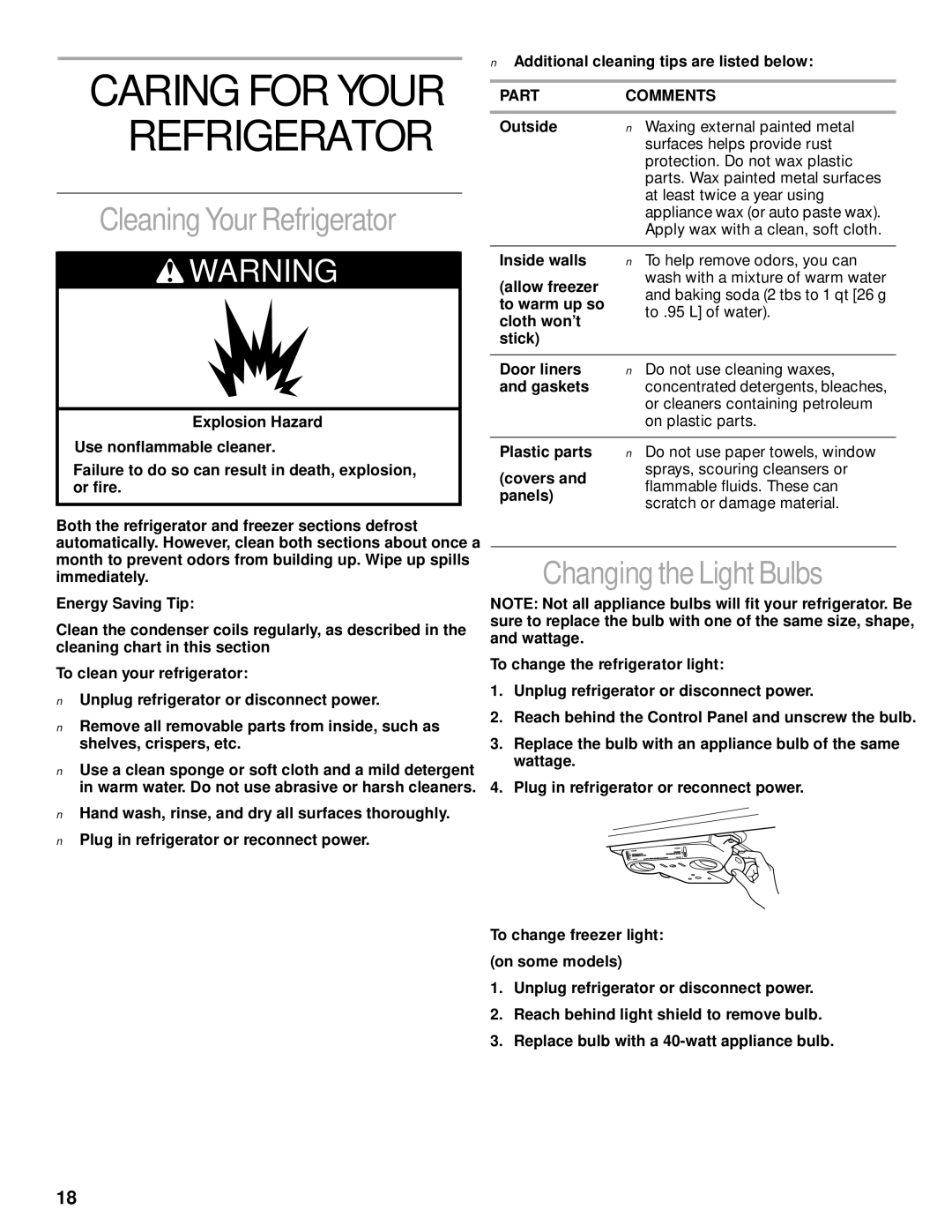2204658 specifications
Whirlpool 2204658 is a standout appliance that epitomizes the blend of innovation, efficiency, and user-friendly design. This versatile product boasts an array of features that cater to the modern consumer's needs, making it a valuable addition to any home.One of the main features of Whirlpool 2204658 is its energy efficiency. Designed with the environment in mind, this appliance utilizes advanced technology to significantly reduce energy consumption while maintaining exceptional performance. It is ENERGY STAR certified, making it an eco-friendly choice that helps consumers save on utility bills without compromising on functionality.
The Whirlpool 2204658 is equipped with a powerful motor and optimized design that allows it to deliver consistent and reliable operation. Whether it’s handling heavy loads or tackling stubborn stains, users can depend on its efficient performance. The appliance also features multiple wash cycles and settings, giving users the flexibility to choose the best option for their specific needs. From delicate fabrics to heavily soiled garments, the Whirlpool 2204658 can handle it all.
In terms of convenience, the Whirlpool 2204658 incorporates intuitive controls that simplify operation. The user-friendly interface features clear settings and indicators, ensuring that even those who are less tech-savvy can operate the appliance with ease. Additionally, the appliance often includes a delay start feature, allowing users to schedule laundry loads at their convenience, which can be particularly useful for busy households.
Another highlight of the Whirlpool 2204658 is its capacity. It provides ample space for larger loads, which is perfect for families or individuals who frequently do laundry. This capability reduces the number of cycles needed, further enhancing energy savings and efficiency.
Moreover, the Whirlpool 2204658 integrates smart technology that can streamline the user experience. Many models come with connectivity features that allow users to control and monitor the appliance remotely through a smartphone app. This means you can start, stop, or schedule cycles from anywhere, adding a level of convenience that aligns with today’s lifestyle.
Overall, the Whirlpool 2204658 combines efficiency, ease of use, and advanced technology, making it an excellent choice for consumers seeking a reliable and modern appliance. With its thoughtful design and robust features, it has become a preferred option for those looking to enhance their home laundry experience.

